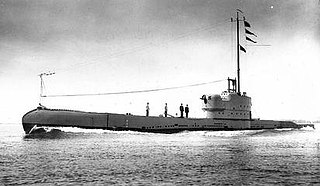Related Research Articles

Abatement of debts and legacies is a common law doctrine of wills that holds that when the equitable assets of a deceased person are not sufficient to satisfy fully all the creditors, their debts must abate proportionately, and they must accept a dividend.
In microeconomic theory, the opportunity cost of a choice is the value of the best alternative forgone where, given limited resources, a choice needs to be made between several mutually exclusive alternatives. Assuming the best choice is made, it is the "cost" incurred by not enjoying the benefit that would have been had by taking the second best available choice. The New Oxford American Dictionary defines it as "the loss of potential gain from other alternatives when one alternative is chosen." As a representation of the relationship between scarcity and choice, the objective of opportunity cost is to ensure efficient use of scarce resources. It incorporates all associated costs of a decision, both explicit and implicit. Thus, opportunity costs are not restricted to monetary or financial costs: the real cost of output forgone, lost time, pleasure, or any other benefit that provides utility should also be considered an opportunity cost.
In economics and business decision-making, a sunk cost is a cost that has already been incurred and cannot be recovered. Sunk costs are contrasted with prospective costs, which are future costs that may be avoided if action is taken. In other words, a sunk cost is a sum paid in the past that is no longer relevant to decisions about the future. Even though economists argue that sunk costs are no longer relevant to future rational decision-making, people in everyday life often take previous expenditures in situations, such as repairing a car or house, into their future decisions regarding those properties.

An abatement is a modification of a coat of arms, representing a less-than honorable augmentation, imposed by an heraldic authority or by royal decree for misconduct. The practice of inverting the entire escutcheon of an armiger found guilty of high treason has been attested since the Middle Ages and is generally accepted as reliable, and medieval heraldic sources cite at least one instance of removing an honourable charge from a coat of arms by royal decree as an abatement of honour. Other abatements of honour implied by the addition of dishonourable stains and charges, appearing in late 16th-century texts, have never been reliably attested in actual practice. Additionally, as many heraldic writers note, the use of arms is not compulsory, so armigers are more likely to relinquish a dishonored coat of arms than to advertise their dishonor.

The Black Swan class and Modified Black Swan class were two classes of sloop of the Royal Navy and Royal Indian Navy. Twelve Black Swans were launched between 1939 and 1943, including four for the Royal Indian Navy; twenty-five Modified Black Swans were launched between 1942 and 1945, including two for the Royal Indian Navy; several other ships were cancelled.
State motorcyclists' rights organizations (SMROs) exist in about 32 US states, 25 of which call themselves "ABATE of ," the rest going by various other names. SMROs advocate for a point of view in motorcycling that is, in general, opposed to mandatory helmet laws, required motorcycle safety inspections, mandatory rider training and licensing, and other similar regulation. Instead SMROs favor optional or voluntary motorcycle rider safety education, training, and licensing, and greater public awareness of motorcyclist safety issues. They also favor stronger penalties for car driver infractions such as right of way violations, or when drivers are at fault in accidents that harm motorcycle riders. SMRO activities include lobbying legislatures, letter writing campaigns, and paying for public service announcements and political advertisements. To carry out lobbying at the national level, a coalition of SMRO's created the Motorcycle Riders Foundation (MRF) to lobby in Washington DC. The SMROs and MRF are often allied with the American Motorcyclist Association (AMA) on legislative issues.
An abatement in pleading, or plea in abatement, was a defence in common law to legal proceedings that did not contest the principle of the plaintiff's [egal remedy|right to relief]] but contended that the plaintiff had made a procedural error and needed to bring fresh proceedings, which followed the correct procedure. The objection could deal with place, time, or method of assertion. The plea in abatement was abolished as a particular form of response by the defendant when common-law pleading was replaced by Code Pleading and later by pleading rules, such as the federal Rules of Civil Procedure.

Greg Abate is a jazz saxophonist, flautist, composer, and arranger. He grew up in Woonsocket, Rhode Island. In the fifth grade he began to play clarinet.
Ignazio Abate is an Italian former professional footballer who played as a full-back and the current head coach of AC Milan's under-19 side. On early stage deployed as a winger, he was also capable of playing as a wide midfielder or as a wing-back, and was even used as a centre-back on occasion; he was renowned for his stamina, quick sprints, and ability to make attacking runs down the right flank. In his prime, he was considered one of the fastest players in the top leagues of European football.

HMS Parthian was the lead boat of the six Royal Navy Parthian-class submarines, all launched in 1929. The submarine was sunk in 1943 during the Second World War. The submarine was nicknamed Peanut, from the identity letters PN painted on the fin.

MS-245 is a tryptamine derivative used in scientific research. It acts as a selective 5-HT6 receptor antagonist with a Ki of 2.3 nM, and was derived through structure-activity relationship development of the selective 5-HT6 agonist EMDT. It has been used as a lead compound for further development of tryptamine-derived 5-HT6 antagonists. In animal studies it has been shown to boost the activity of, but not substitute for, both amphetamine and nicotine.
Empire Broadsword was a Type C1-S-AY-1 infantry landing ship built in 1943 as Cape Marshall. She was renamed Empire Broadsword before completion and entering into service for the Ministry of War Transport (MoWT). She had a short career, entering service in December 1943 and being sunk by a mine in July 1944.
Ceuta was a 2,719 GRT cargo ship which was built in 1929 for the Oldenburg-Portugiesische Dampfschiffs-Reederei. She was sunk during an air raid in 1943, but later raised, repaired and returned to service. She was seized as a war prize in 1945, passed to the British Ministry of War Transport (MoWT) and renamed Empire Camel.
Convoy JW 56A was an Arctic convoy sent from Great Britain by the Western Allies to aid the Soviet Union during World War II. It sailed in January 1944, reaching the Soviet northern ports at the end of the month. Twelve ships arrived safely. During the voyage JW 56A was attacked by a German U-boat force; three ships were sunk and one of the escorts damaged in the operation.
Konai is a Trans–New Guinea language of New Guinea, spoken on the west bank of the Strickland River.

Gary Patrick Angelo Dell'Abate, also known by the nickname Baba Booey, is an American radio producer who has been the executive producer of The Howard Stern Show since 1984. His autobiography, They Call Me Baba Booey, was released on November 2, 2010.
Preußen was a fishing trawler requisitioned during World War II by the Kriegsmarine for use as a Vorpostenboot. She was built in 1930 as August Wriedt, and was renamed Preußen in 1933. On 13 August 1944, she was sunk off Langeoog by Bristol Beaufighter aircraft of 254 Squadron, Royal Air Force.
Claus Bolten was a German fishing trawler which was requistioned by the Kriegsmarine in the Second World War for use as a vorpostenboot, serving as V 213 Claus Bolten. She was sunk in a battle in the English Channel in July 1944.
Ferdinand Niedermeyer was a German fishing trawler that was requistioned in the Second World War by the Kriegsmarine for use as a vorpostenboot, serving as V 413 Ferdinand Niedermeyer. She was bombed and sunk off St. Peter Port, Guernsey, Channel Islands on 24 July 1944.
Kergroise was built in 1918 as the German patrol vessel SMS Bunnemann. Allocated to the French Navy in 1920, she was sold in 1921, becoming the fishing trawler Kergroise. She was requisition by the French Navy in 1939 for use as a minesweeper. She was sunk in June 1940. Subsequently refloated in April 1941 and repaired. In October 1942 was requisitioned by the Kriegsmarine for use as a vorpostenboot, serving as V 422 Kergroise. She was sunk in June 1944.
References
- ↑ One or more of the preceding sentences incorporates text from a publication now in the public domain : Chisholm, Hugh, ed. (1911). "Abated". Encyclopædia Britannica . Vol. 1 (11th ed.). Cambridge University Press. p. 7.